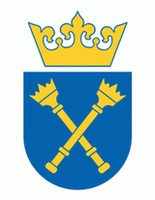The Faculty consists of the Institute of Mathematics, the Institute of Computer Science and Computer Mathematics, the Cluster of Chairs and Departments of Mathematical Computer Science and the Chair in Optimization and Control. The Faculty has been granted the highest status as a research institution by the Committee for Scientific Research and entitled to confer doctoral and postdoctoral degrees and titles in both Mathematics and Computer Science by the Central Commission for Academic Degrees and Titiles.
Computer
A computer is a device that can be instructed to carry out sequences of arithmetic or logical operations automatically via computer programming. Modern computers have the ability to follow generalized sets of operations, called programs. These programs enable computers to perform an extremely wide range of tasks.
Computer Science
Computer science is the study of the theory, experimentation, and engineering that form the basis for the design and use of computers. It is the scientific and practical approach to computation and its applications and the systematic study of the feasibility, structure, expression, and mechanization of the methodical procedures (or algorithms) that underlie the acquisition, representation, processing, storage, communication of, and access to, information. An alternate, more succinct definition of computer science is the study of automating algorithmic processes that scale. A computer scientist specializes in the theory of computation and the design of computational systems. See glossary of computer science.
Faculty
Faculty may refer to:
Mathematics
Mathematics (from Greek μάθημα máthēma, "knowledge, study, learning") is the study of such topics as quantity, structure, space, and change. It has no generally accepted definition.
Science
Science (from Latin scientia, meaning "knowledge") is a systematic enterprise that builds and organizes knowledge in the form of testable explanations and predictions about the universe.
Mathematics
The final truth about a phenomenon resides in the mathematical description of it; so long as there is no imperfection in this, our knowledge of the phenomenon is complete. We go beyond the mathematical formula at our own risk; we may find a model or a picture which helps us understand it, but we have no right to expect this, and our failure to find such a model or picture need not indicate that either our reasoning or our knowledge is at fault. The making of models or pictures to explain mathematical formulas and the phenomena they describe is not a step towards, but a step away from reality; it is like making a graven image of a spirit.
Sir James Jeans, The Mysterious Universe (1930)
Computer Science
I can’t be as confident about computer science as I can about biology. Biology easily has 500 years of exciting problems to work on. It’s at that level.
Donald Knuth (1993) Computer Literacy Bookshops Interview
Science
Science has an important part to play in our everyday existence, and there is far too much neglect of science; but its intention is to supplement not to supplant the familiar outlook.
Arthur Eddington, Science and the Unseen World (1929).

